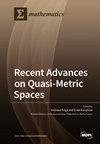An Attribute-Based End-to-End Policy-Controlled Signcryption Scheme for Secure Group Chat Communication
IF 2.2
3区 数学
Q1 MATHEMATICS
引用次数: 0
Abstract
Secure instant communication is an important topic of information security. A group chat is a highly convenient mode of instant communication. Increasingly, companies are adopting group chats as a daily office communication tool. However, a large volume of messages in group chat communication can lead to message overload, causing group members to miss important information. Additionally, the communication operator’s server may engage in the unreliable behavior of stealing information from the group chat. To address these issues, this paper proposes an attribute-based end-to-end policy-controlled signcryption scheme, aimed at establishing a secure and user-friendly group chat communication mode. By using the linear secret sharing scheme (LSSS) with strong expressive power to construct the access structure in the signcryption technology, the sender can precisely control the recipients of the group chat information to avoid message overload. To minimize computational cost, a signcryption step with constant computational overhead is designed. Additionally, a message-sending mechanism combining “signcryption + encryption” is employed to prevent the operator server from maliciously stealing group chat information. Rigorous analysis shows that PCE-EtoE can resist adaptive chosen-ciphertext attacks under the standard model. Simulation results demonstrate that our theoretical derivation is correct, and that the PCE-EtoE scheme outperforms existing schemes in terms of computational cost, making it suitable for group chat communication.一种基于属性的端到端策略控制签名加密方案,用于安全群组聊天通信
安全的即时通信是信息安全的一个重要课题。群组聊天是一种非常方便的即时通信模式。越来越多的公司将群聊作为日常办公沟通工具。然而,群聊通信中的大量信息可能导致信息超载,使群组成员错过重要信息。此外,通信运营商的服务器可能会从事从群聊中窃取信息的不可靠行为。针对这些问题,本文提出了一种基于属性的端到端策略控制签名加密方案,旨在建立一种安全且用户友好的群聊通信模式。通过在签名加密技术中使用具有强大表达能力的线性秘密共享方案(LSSS)来构建访问结构,发送方可以精确控制群聊信息的接收方,避免信息过载。为了最大限度地降低计算成本,设计了一个计算开销恒定的签名加密步骤。此外,还采用了 "签名加密+加密 "相结合的信息发送机制,以防止运营商服务器恶意窃取群聊信息。严谨的分析表明,在标准模型下,PCE-EtoE 可以抵御自适应选择密文攻击。仿真结果表明,我们的理论推导是正确的,PCE-EtoE 方案在计算成本方面优于现有方案,因此适用于群聊通信。
本文章由计算机程序翻译,如有差异,请以英文原文为准。
求助全文
约1分钟内获得全文
求助全文
来源期刊

Mathematics
Mathematics-General Mathematics
CiteScore
4.00
自引率
16.70%
发文量
4032
审稿时长
21.9 days
期刊介绍:
Mathematics (ISSN 2227-7390) is an international, open access journal which provides an advanced forum for studies related to mathematical sciences. It devotes exclusively to the publication of high-quality reviews, regular research papers and short communications in all areas of pure and applied mathematics. Mathematics also publishes timely and thorough survey articles on current trends, new theoretical techniques, novel ideas and new mathematical tools in different branches of mathematics.
 求助内容:
求助内容: 应助结果提醒方式:
应助结果提醒方式:


